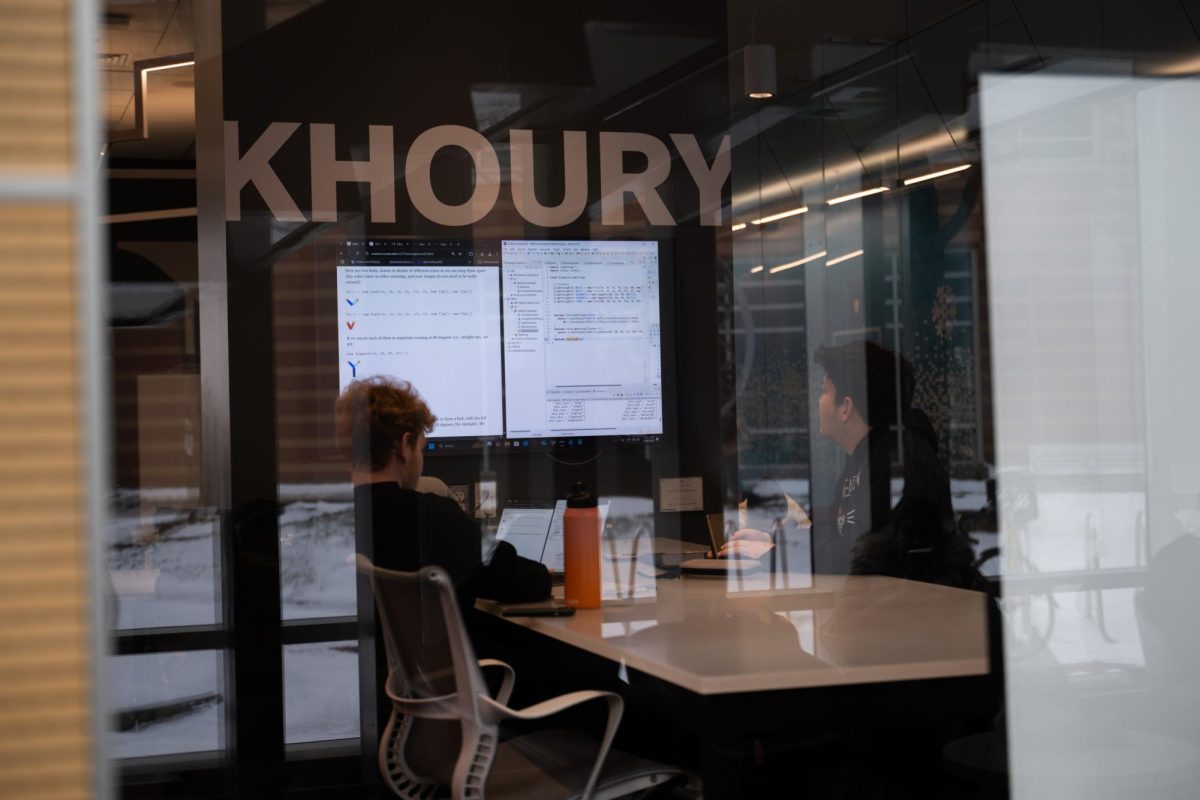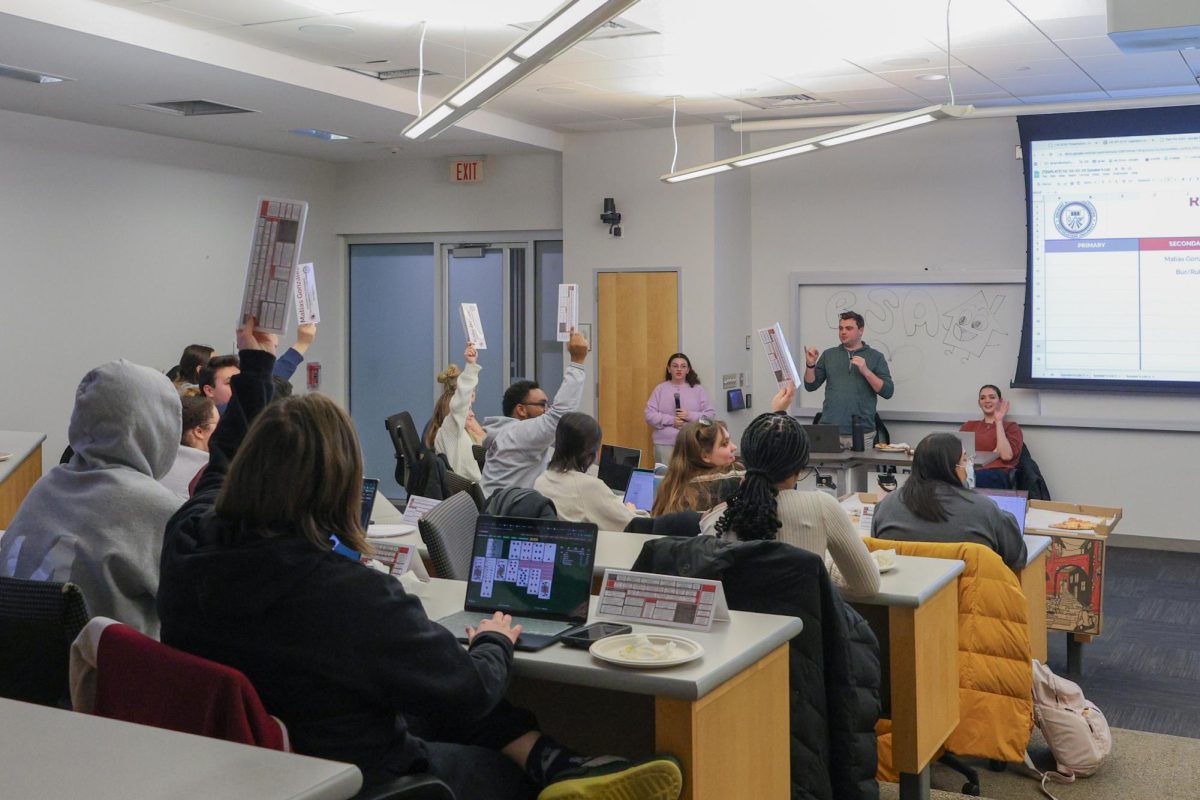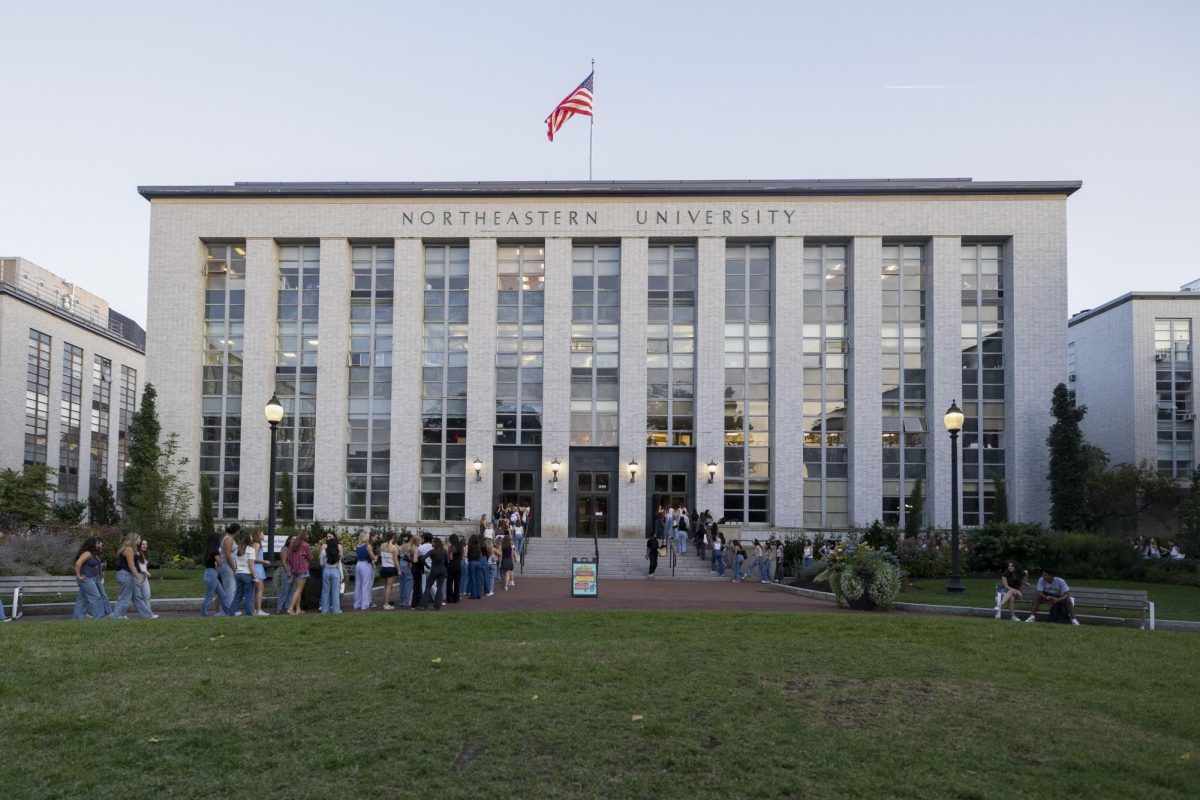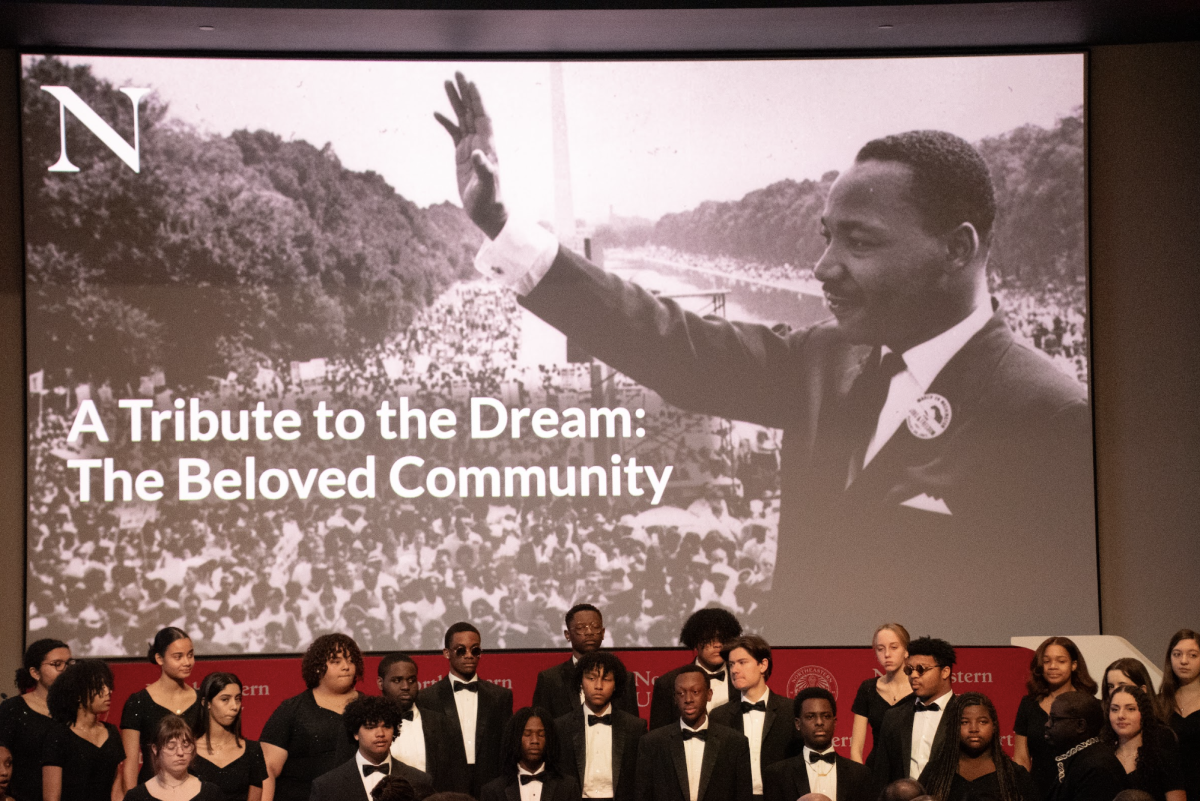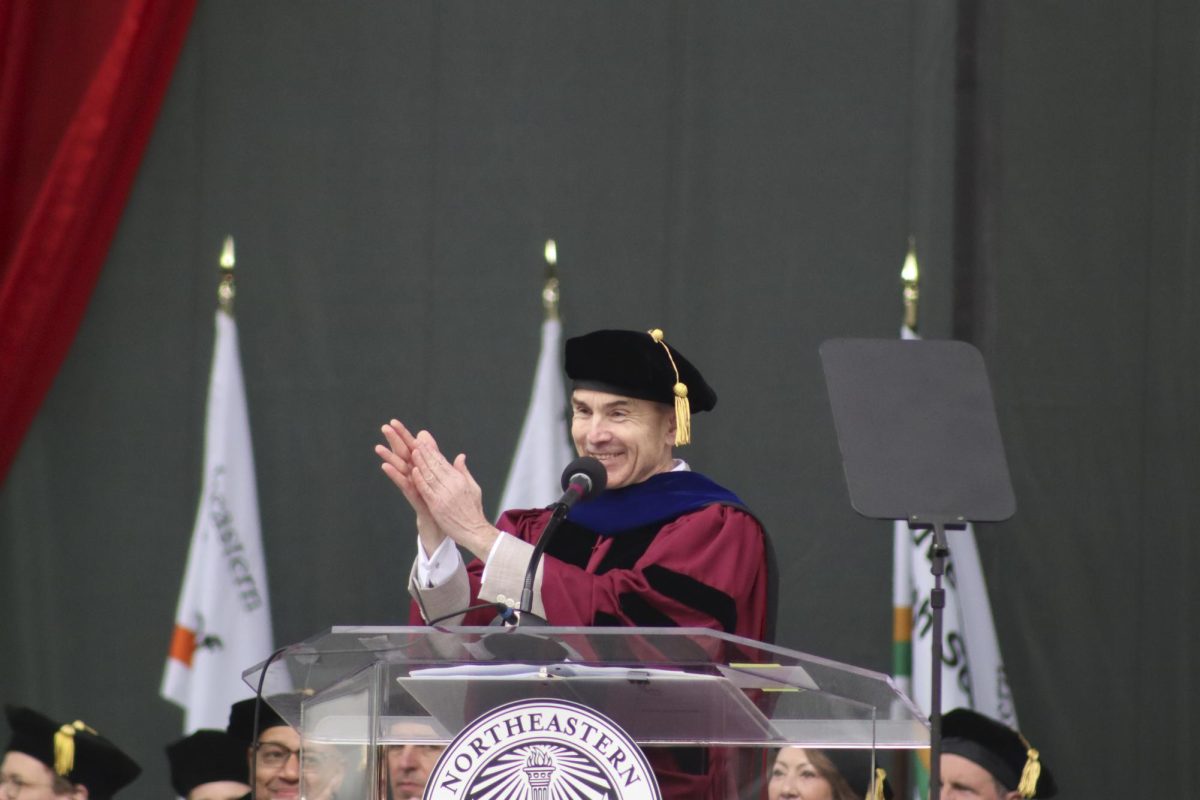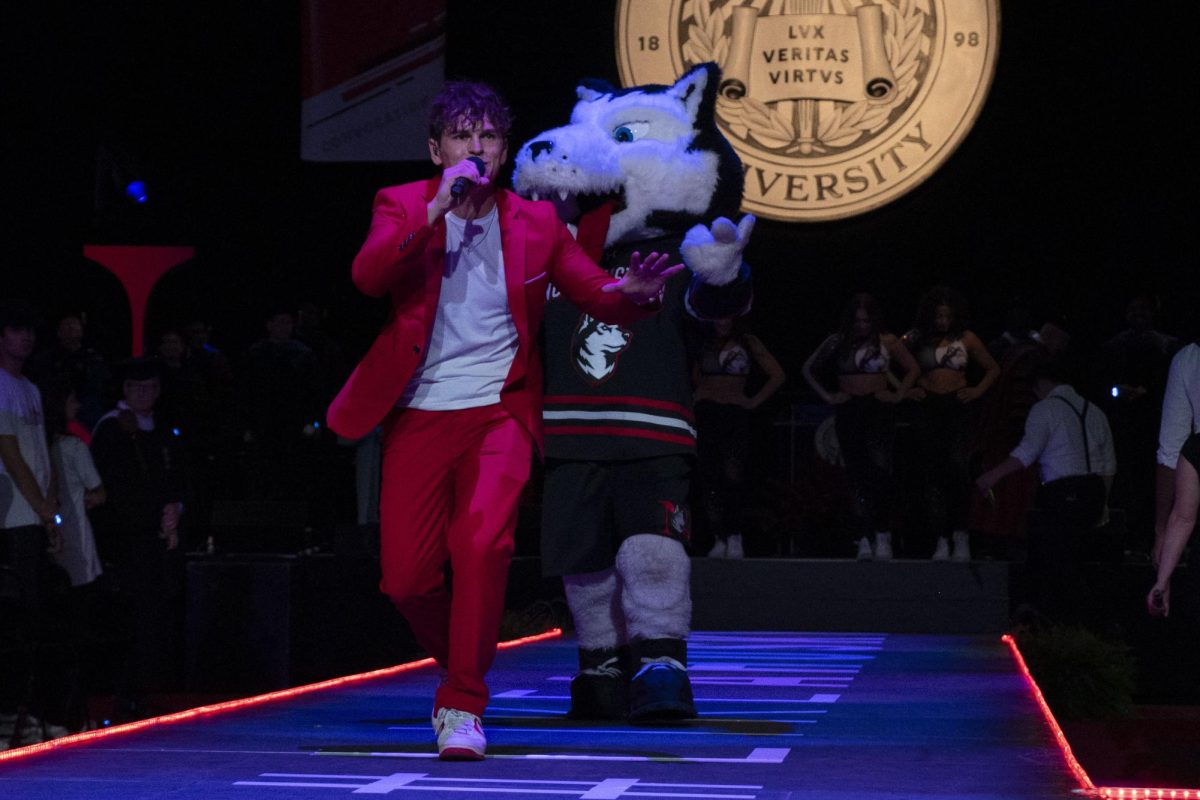By Kitt Wolfenden
After a two-year race for the presidency that engaged and excited many members of the Northeastern community, the campaigns are finally done.
Now, elated and disappointed political junkie Huskies alike are faced with a new, unfamiliar emotion. withdrawal.
Those suffering are easy to spot: They shuffle to and from class wearing their now-irrelevant campaign gear, searching for something to replace their political obsession.
The Center for Information and Research on Civic Learning and Engagement (CIRCLE), a research organization that studies the political activity of young people, reported that 23 million Americans younger than the age of 30 voted this year, 3.4 million more than in 2004.
“This year there was a lot of student support for Obama that translated into higher interest,” said journalism professor Alan Schroeder, who has written books about politics, like “Presidential Debates: 40 years of high-risk TV.”
Professor John Portz, chair of the political science department, attributed the rise in student participation to two factors.
“It was a combination of the frustrations with the current administration and the potential of a historic election,” he said. “Students identified with that.”
Interested Northeastern students found many ways to get involved during the campaign. For example, Michael Denham, a freshman political science major, volunteered for the Obama for America campaign in Boston.
“I felt it was my job to know what I was talking about. I kept up with the campaign news pretty closely,” he said.
Sophomore Jason Palitsch, who serves as president of the Northeastern University College Democrats, organized voter registration drives in New Hampshire canvassing trips and cell-phone banks.
“I devoted a lot of time to the College Democrats’ operations, and I also had a job with the State Senate,” he said. “The election essentially monopolized my personal time.”
But now that the election’s done, there is a lull in campaign news to follow and events to organize or attend.
“Once the election was over that storyline ended,” Schroeder said. “We’re in a transitional moment where everyone is trying to figure out, what is the next chapter in this story?”
Some appreciate the break from the elections.
“The break is good,” Portz said. “We have very long campaigns, I think too long. I’m ready for a break and I think others are, too.”
But for devoted followers like Denham, the lull is tedious.
“There’s still stuff going on, but it’s not nearly as interesting,” he said. “After the inauguration the first hundred days will be interesting, but political junkies have to tide themselves over until then.”
Palitsch said he was “relieved and relaxed” the elections were done and pleased with his candidate’s landslide victory.
“The work to ensure Democratic victories in the next election begins now,” Palitsch said. “The elections of 2008 began in December of 2006, so the midterm elections should kick off soon. There won’t be a lot of downtime. Students should continue to follow the news and current events to stay continuously updated and aware. They should look into volunteering or getting involved in state campaigns.”
Portz suggested students think about off-campus possibilities.
“There are student groups like the [Northeastern University College] Democrats, the [Northeastern University College] Republicans and the Political Science Student Association,” Portz said, “but you can also start looking outside of Northeastern. There are all these other organizations out there; the opportunities extend beyond our campus.”


